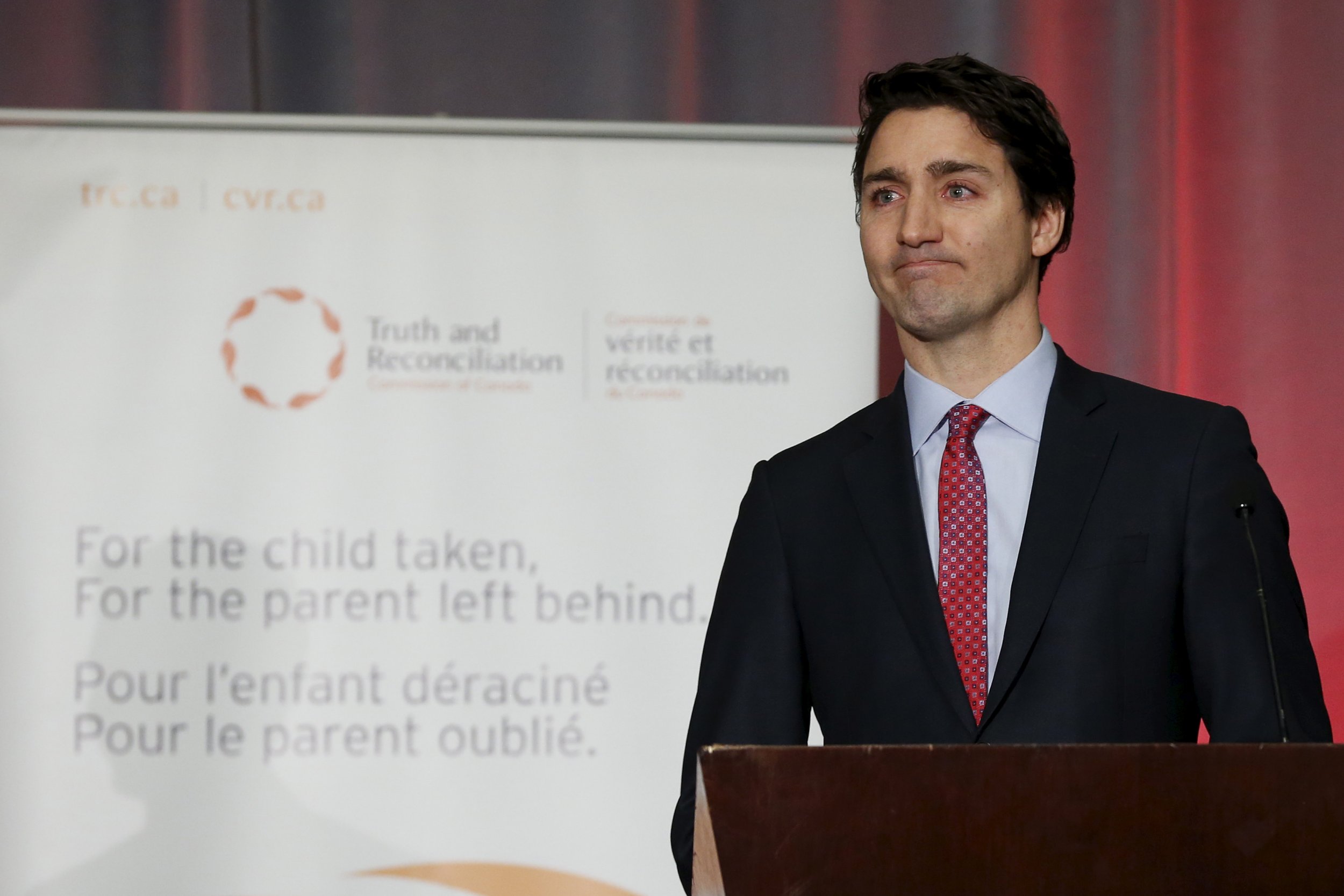
This article was first published on Reason.com.
Justin Trudeau, the Liberal prime minister who won this past October's elections in Canada against the Conservative Stephen Harper, who was seeking a third term, ran in part on a promise to legalize marijuana and said he was going to "get started on that right away," signaling a departure from the Harper administration's anti-pot stance.
Now Trudeau has said his efforts have hit a snag—international treaties. They were, uh, there during the election campaign, even if they were left unmentioned by the candidate himself.
The Canadian Press reported:
The Liberal government will have to do substantial work on the international stage before it can follow through on Prime Minister Justin Trudeau's promise to legalize marijuana, new documents suggest.
That work will have to include figuring out how Canada would comply with three international treaties to which the country is a party, all of which criminalize the possession and production of marijuana.
Trudeau's plan to legalize, regulate and restrict access to marijuana is already proving a complicated and controversial undertaking on the domestic front, in part because it requires working with the provinces.
Internationally, says a briefing note prepared for the prime minister, Canada will also have to find a way to essentially tell the world how it plans to conform to its treaty obligations.
The treaties—the Single Convention on Narcotic Drugs and (because, hey, what's in a name, two more) the Convention on Psychotropic Substances and the United Nations Convention against Illicit Traffic in Narcotic Drugs and Psychotropic Substances—date back to the '60s, '70s and '80s.
Canada made a reservation to the second treaty, about permitting the use of peyote for magical or religious rites by "small, clearly determined groups," mimicking a U.S. one.
A similar argument came up in the United States a couple of years ago when some critics of marijuana legalization in Colorado and Washington insisted these international treaties required the federal government to prevent legalization, a spurious argument Jacob Sullum, senior editor at Reason.com, demolished:
Under our federalist system…states have no obligation to punish every activity that Congress chooses to treat as a crime.
The Supreme Court has said, based on a dubious reading of the power to regulate interstate commerce, that the federal government may continue to enforce its own ban on marijuana in states that take a different approach. But that does not mean the feds can compel states to help, let alone force them to enact their own bans.…
Even if treaties could override federalism, the agreements [critics cite] do not purport to do so. The 1961 Single Convention on Narcotic Drugs says compliance is subject to "constitutional limitations" and undertaken with "due regard to [signatories'] constitutional, legal and administrative systems." The 1971 Convention on Psychotropic Substances and the 1988 Convention Against Illicit Traffic in Narcotic Drugs and Psychotropic Substances contain similar provisions.
The federalist approach taken in the United States by advocates of marijuana legalization has brought or is bringing recreational marijuana into the legal market in four states plus Washington, D.C., and allowed a plethora of local jurisdictions to do the same. It also allowed states to try more restrictive than legal, but no longer totally prohibitionist, approaches, like legalizing medical marijuana or small amounts of the nonmedical stuff.
In Canada, as The Canadian Press mentioned, Trudeau is facing difficulty with the provinces.
A former Liberal prime minister, Jean Chretien, flirted with a bill to decriminalize marijuana in 2003. It was concern from the United States, not concern about international treaty obligations, that helped kill that effort.
And while marijuana legalization was thought to be driving young people to the polls, unlike in the U.S., the provinces themselves haven't made much of an effort to legalize marijuana.
They have a different constitutional structure in Canada. Maybe Trudeau can ask permission from the queen? He can tell her because it's 2016—that's why.
Ed Krayewski is an associate editor at Reason.com.
Uncommon Knowledge
Newsweek is committed to challenging conventional wisdom and finding connections in the search for common ground.
Newsweek is committed to challenging conventional wisdom and finding connections in the search for common ground.
About the writer
To read how Newsweek uses AI as a newsroom tool, Click here.








